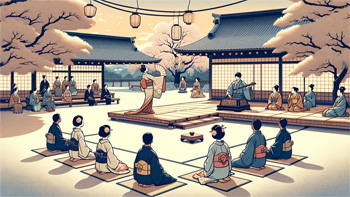 Culture Day in Japan
Culture Day in Japan


Culture Day in Japan, known as 'Bunka no Hi', is a unique and vibrant holiday celebrated on November 3rd each year. This special day is dedicated to the arts, culture, and academic achievement, celebrating Japan's rich cultural heritage and promoting the love for freedom and peace that the nation holds dear. Unlike other holidays focused on specific traditions or historical events, Culture Day is a broad celebration of cultural activities and expressions. Here, we delve into the essence of Culture Day, exploring its historical background, how it's celebrated, and its significance in Japan’s cultural landscape.
The origins of Culture Day date back to 1948 when the holiday was established to commemorate the announcement of the post-war Japanese constitution, which took place on November 3, 1946. While the day originally celebrated the new constitution, emphasizing peace and freedom, it evolved to focus more on cultural aspects, recognizing Japan's rich artistic traditions and the achievements of its citizens.
Festivals and Artistic Celebrations
One of the most noticeable aspects of Culture Day is the myriad of festivals and artistic events that take place throughout the country. Art exhibitions, music concerts, parades, and traditional performances are held in various cities and towns. These events showcase the diversity of Japanese culture, from ancient art forms like kabuki and noh to contemporary art and music.
Many communities hold local festivals, which often include street performances, workshops, and displays of traditional crafts. These festivals provide an opportunity for people to experience and engage with various aspects of Japanese culture firsthand.
Academic and Cultural Awards
Culture Day is also notable for the awarding of the Order of Culture, one of the highest honors in the field of arts and culture in Japan. The government presents these awards to individuals who have made significant contributions to the development and promotion of Japanese arts, literature, and culture. The award ceremony, held at the Imperial Palace, is a major highlight of Culture Day, drawing attention to the importance of cultural achievements in Japanese society.
In addition to the Order of Culture, academic and cultural institutions often host ceremonies and events to honor outstanding achievements in various fields. Universities and schools organize exhibitions, lectures, and performances, highlighting the academic and cultural work of students and faculty.
Family Participation and Community Engagement
Culture Day is a family-oriented holiday, with many events designed to be accessible and enjoyable for people of all ages. Families take this opportunity to explore museums, galleries, and cultural sites, many of which offer special programs or free admission on this day.
Community engagement is also a significant aspect of Culture Day. Local governments and cultural organizations encourage participation in cultural activities, aiming to foster a deeper understanding and appreciation of Japan's cultural heritage among the public.
Culture Day in Japan is more than just a national holiday; it's a celebration of the nation’s artistic, academic, and cultural vitality. It reflects the Japanese people's respect for their cultural heritage and their ongoing commitment to fostering peace and freedom through cultural expression. As Japan continues to navigate the modern world, Culture Day remains a significant event, symbolizing the nation's dedication to preserving and promoting its rich cultural traditions.